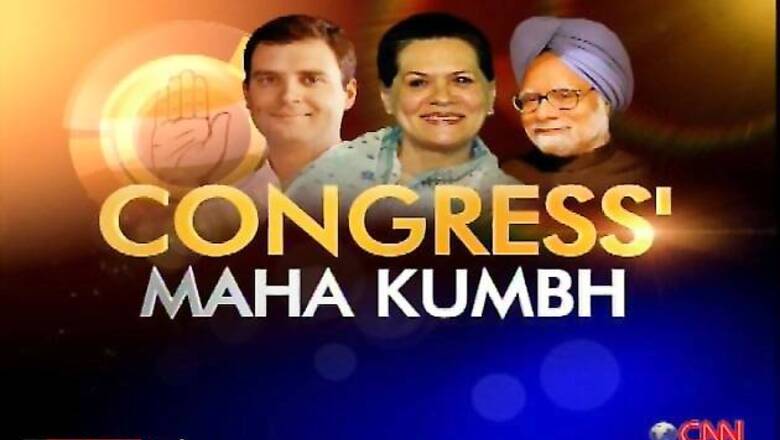
views
Jaipur: A strong demand for ending the culture of nomination at all levels for democratic functioning of the party and its revival was made at the Congress brainstorming conclave here on January 19. The 'Chintan Shivir' saw a plea for replicating Rahul Gandhi's model of holding elections to the Youth Congress and NSUI in the parent body as well as all its other wings.
Kerala PCC President Ramesh Chennithala took the lead by demanding that the parent body should follow the organisational election model introduced by Rahul in the two youth wings.
"The present nomination system is definitely weakening the party. It is high time systematic regular organisational elections are held. Rahul was able to conduct elections in Youth Congress and NSUI. Congress also needs a comprehensive organisational plan to conduct elections," he said.
AICC secretary Sagar Rayaka demanded that members for Congress Working Committee should also be elected doing away with the current practice of nominating all 22-members as "irresponsible" leaders and power brokers manage entry into the all-powerful group due to nomination culture, sources said.
Chennithala and Rayaka made these remarks this while participating in the discussion on Organisational matters. The practice earlier was that 12 of CWC members were elected while 10 were nominated by the Congress President, who herself used to be the 23rd member of the all-powerful group. However, for quite some time election to the CWC has not been taking place and members are nominated.
The discussion also saw a large number of people expressing concern over outsiders getting party tickets at the cost of loyalists during elections. Members from Youth Congress were quite vocal in demanding that party tickets must go to party members and not turncoats.
AICC general secretary Vilas Muttemwar was at his humorous best when he said changing parties has now become like operating a mobile number where both incoming and outgoing is free. With portability scheme, even the number does not change. He explained that there are instances when somebody, who is a general secretary in a party, is also made secretary when he joins the other party.
In the all-important group on emerging political challenges, the discussion saw a near consensus on the idea contained in the base paper for discussion that as a matter of policy no General Secretary, AICC in-charge of state, PCC and
DCC President will contest the Lok Sabha/Assembly election.
"It has generally been observed that when Elections (Parliament and Assemblies are being held, General Secretaries, PCC President and DCC Presidents instead of campaigning, overseeing, coordinating and monitoring the elections, are busy in their own respective constituencies, thereby adversely affecting the winning chances and morale of the party," the base paper had said.
It had suggested that instead of fielding them in elections, they could be considered for nomination for Boards, Corporations, upper House in Parliament and legislature. While a large number of participants agreed with the view, some opposed. They wondered what value a PCC chief will have in his state unit, if it was made clear that he will not contest elections.
There was a strong view that the Antony committee report on organisational reforms should be accepted. The base paper said that the Antony committee report, which has been accepted and endorsed by the CWC had suggested that the names of Lok Sabha candidates should be announced one year and Assembly constituency candidates three months in advance.
"While keeping the winning abilities of candidates in mind as a general norm while election tickets should be preferably given to party members in recognition of their long term commitment and work at the grassroots level in the party, re-entry or entry of individuals only for the sake of claiming
tickets should be discouraged. "Also candidates who have lost more than twice in Assembly or Parliament elections should not be considered and fresh candidates should be given the opportunity," the paper had said.
There was broad agreement on these issues during the discussions. The base paper on the political issue also said that the organisation should "prepare demographic details of all assembly constituencies at state level. The economy and occupational profile, social-economic structures of voters, local issues and others should essentially be included in the data."
It had also recommended that a central research and coordination department should be established at the AICC level. This should help in the relevant political database related research documentation and such allied activities. It was endorsed during the discussions.
Asking for redefining the role, structure and organisation of the party at various levels, the paper had also suggested that one or two Union Ministers should be made in-charge ministers for a state, for coordination between the party and the government, to monitor the implementation of the manifesto and oversee the functioning of flagship programmes.
####











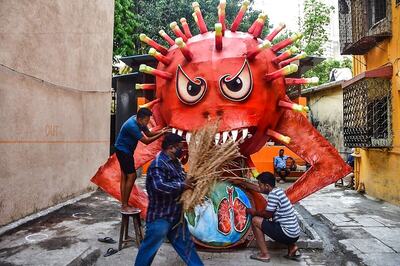


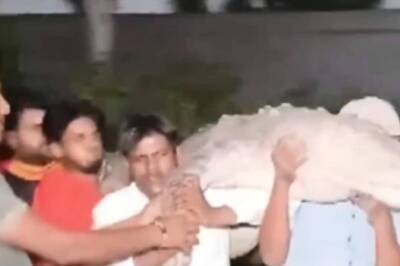



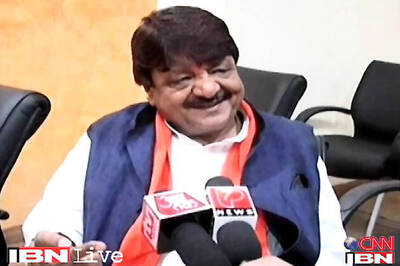
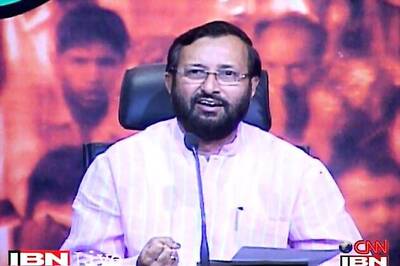
Comments
0 comment